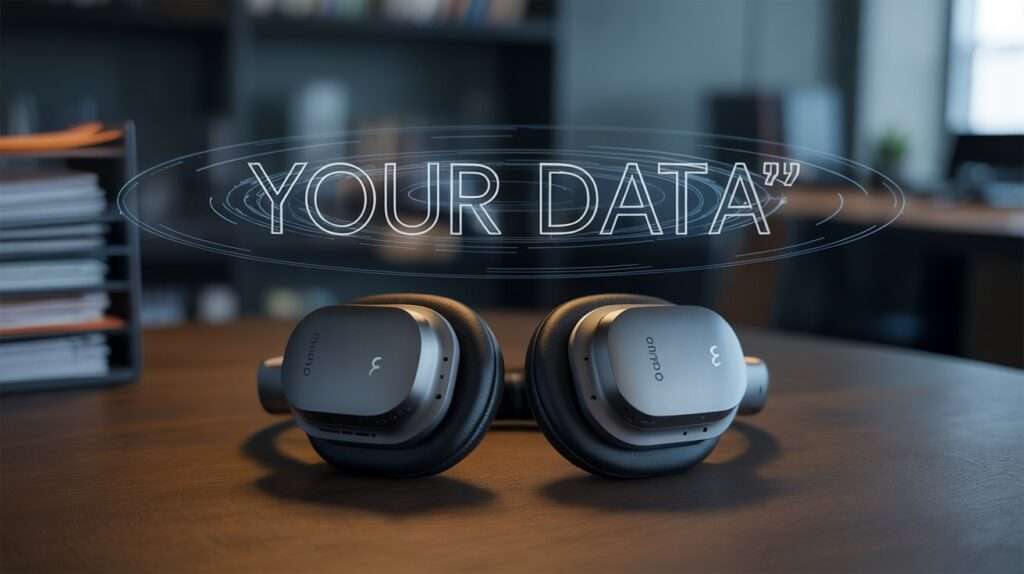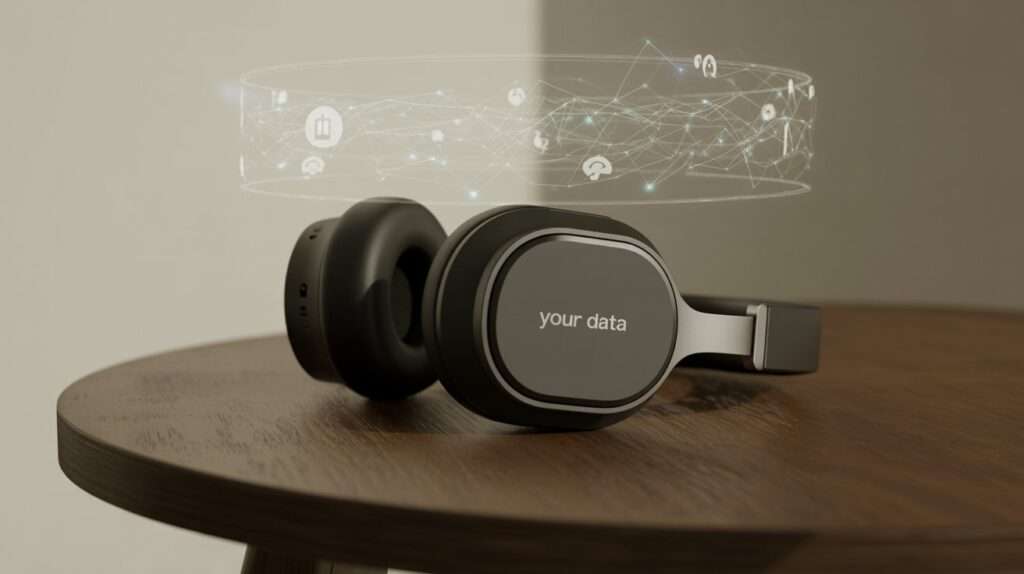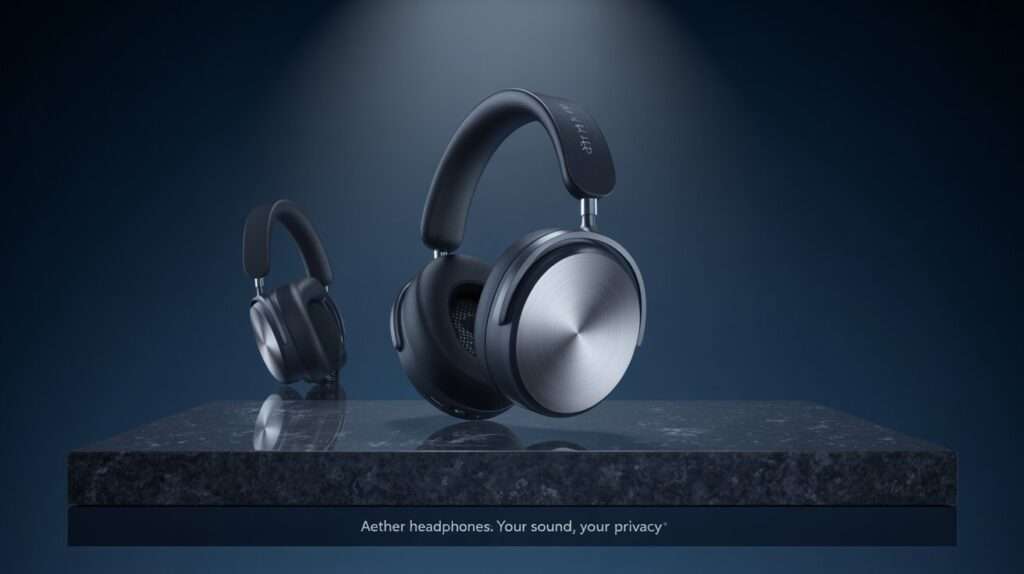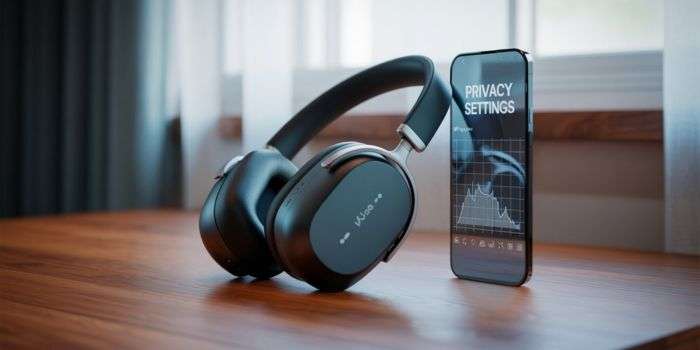Curious whether your headphones might be doing more than just playing music? Today’s smart audio devices often come equipped with microphones, sensors, and connectivity features that could be collecting more personal data than you realize.
As privacy concerns grow, it’s essential to understand what information your headphones might be tracking and how to protect yourself. Stay ahead with insights that help you make informed tech choices.
Ready to find out what your favorite listening device really knows about you? Keep reading to uncover the facts and learn how to secure your privacy with confidence.
1. What Kind of Personal Data Are Headphones Collecting?

Modern headphones, especially those with fitness or smart features, can collect a surprising amount of personal information. Basic data like your name, address, and email are often required when registering a product or using a companion app.
However, some headphones go much further. For example, fitness-focused earbuds might request your height, weight, age, and sex to tailor workout feedback.
Some apps even ask for unique details such as leg length, shoe type, and whether you’re right or left-footed. More concerning, certain models have been found to collect sensitive wellness data, including alcohol consumption, injury history, and even menstruation history.
This level of detail raises significant privacy concerns, especially if such data is ever exposed in a breach or accessed by unauthorized parties.
2. What Other Headphone Companies Collect Personal Data?

Data collection isn’t limited to obscure brands; major companies are involved too. Bose, for instance, has faced lawsuits and public scrutiny over its data practices.
The Bose Connect app, used to pair and control headphones, collects information like your name, email, and product serial number. It also tracks your listening habits what music, podcasts, or radio you play which can reveal personal preferences and even aspects of your identity.
There have been allegations that Bose shared this data with third-party analytics firms without clear user consent.
JBL, another leading brand, collects device-specific information (like hardware model, operating system, and unique identifiers), biometric data (such as voice recordings and sleep data), and geolocation information for certain products
While most companies claim to use this data to improve user experience, the extent and sensitivity of the information collected can be unsettling.

3. Pros and Cons of Headphones Collecting Personal Data
Pros:
- Enhanced Features: By collecting data, headphones can offer personalized experiences, such as tailored workout feedback, adaptive noise cancellation, or custom sound profiles.
- Improved Product Support: Data helps companies troubleshoot issues, deliver updates, and provide better customer service.
- Integration with Other Services: Sharing data with companion apps can enable features like voice assistants, location-based reminders, or health tracking.
Cons:
- Privacy Risks: The more data collected, the greater the risk of exposure through hacking, data breaches, or unauthorized sharing with third parties.
- Lack of Transparency: Many users are unaware of the extent of data being collected or how it’s being used, leading to concerns about consent and control.
- Potential Misuse: Sensitive data, like listening habits or health information, could be used for targeted advertising or even sold to data brokers without explicit permission.
Conclusion
Headphones are no longer just passive audio devices; they are increasingly sophisticated tools that can collect a wealth of personal data. While this can unlock new features and improve user experience, it also introduces significant privacy concerns.
Consumers should be aware of what information their devices are gathering and take steps to protect their data, such as reviewing privacy policies, adjusting app permissions, and opting out of unnecessary data sharing whenever possible. As technology continues to advance, staying informed is the best way to balance convenience with privacy.
Frequently Asked Questions
Do all headphones collect personal data?
No, not all headphones collect personal data. Basic wired headphones typically do not gather any information. However, wireless, smart, or app-connected headphones often do, especially if they offer advanced features.
What can I do to limit data collection?
You can limit data collection by carefully reading privacy policies, adjusting app permissions, opting out of data sharing features, and avoiding unnecessary app installations. Consider using headphones that do not require companion apps for full functionality.
Is my listening history really sensitive information?
Yes, your listening habits can reveal personal preferences, religious beliefs, health conditions, or even political views. This information, if shared or sold, could be used for targeted advertising or profiling.
Are there risks if my headphone data is breached?
Absolutely. If sensitive data like health information or location history is exposed in a breach, it could be misused by malicious actors or become a target for identity theft.
Can I use headphones without sharing any data?
Yes, you can use basic headphones without sharing personal data. For smart headphones, you can often use them in a limited mode without connecting to an app, though some features may be unavailable.
